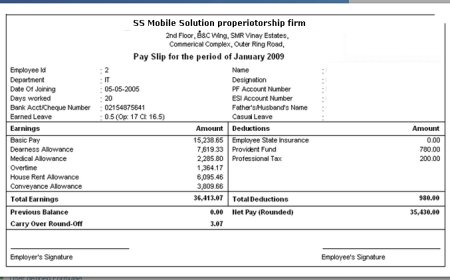Effective Assignment Writing: 8 Techniques for Students
Ace your next assignment with these 8 simple, effective writing techniques for students. Write better, stress less, and score higher.

Lets be real academic assignments can feel overwhelming. Whether its a 2,000-word essay, a research project, or a case study, getting started (and staying on track) is sometimes the hardest part.
But the good news? Writing assignments doesnt have to be a nightmare. With a few practical techniques and a clearer approach, you can reduce stress, boost your grades, and maybe even enjoy the process (yes, really).
In this guide, Ill walk you through eight tried-and-true techniques to help you master effective assignment writing and set yourself up for success.
1. Understand the Brief Completely
This one sounds obvious, but so many students skip it. Before you write a single word, make sure you really understand:
? The topic or research question
? The marking criteria
? Word count and referencing style
? Any sub-questions or learning outcomes
If youre unclear, ask your tutor for clarification. Its much better to spend ten minutes confirming the requirements now than rewriting everything later.
Pro tip: Break the brief into a checklist. As you write, keep ticking off each element to stay on target.
2. Dont Be Afraid to Ask for Help
Sometimes, even with the best intentions, assignments just feel too overwhelming. Theres no shame in reaching out for support whether thats a tutor, study group, or a professional academic coach.
For example, students studying architecture or engineering often look for revit assignment help to tackle complex software-based projects. In the same way, you can find qualified help in any subject area if you feel stuck.
What matters is doing what you need to succeed, rather than silently struggling.
3. Research Smarter, Not Harder
Research can eat up hours if you dont approach it strategically. Start with your reading list, then branch out to reliable academic journals and textbooks.
Look for the most relevant, up-to-date, peer-reviewed sources, and make notes as you go. Dont fall into the trap of reading 20 articles in full if only two are directly useful.
Use online tools like Google Scholar or your university librarys e-resources. And remember to save all your references as you find them future you will thank you.
4. Develop a Strong Thesis Statement
Your thesis (or main argument) is the backbone of your assignment. Everything you write should relate to and support it.
Think of the thesis like your GPS it keeps you on course and helps your reader understand your destination.
A strong thesis should be:
-
Clear and specific
-
Debatable (not just a statement of fact)
-
Relevant to the assignment brief
For example:
This essay argues that implementing a universal design approach can significantly improve accessibility in higher education environments.
5. Use Clear, Academic Language
Academic writing doesnt mean stuffing your essay with jargon or ten-dollar words. Aim for clear, concise, and formal language.
? Avoid slang
? Write in the third person (unless your brief allows otherwise)
? Keep sentences varied and readable
? Check for grammar and punctuation errors
One helpful trick is reading your work aloud its amazing how many awkward phrases youll catch when you hear them rather than just scanning the page.
6. Stay Critical and Analytical
A common pitfall in student assignments is describing, rather than analysing. Academic work is about making arguments, weighing evidence, and critically engaging with your sources.
When you reference a study, ask:
-
What does this mean in relation to your thesis?
-
Does it support or challenge other ideas?
-
Are there limitations or gaps in its findings?
Demonstrating critical thinking is exactly what your markers want to see it shows you understand the material and can apply it intelligently.
7. Edit, Then Edit Again
Writing the first draft is only half the battle. Editing is where your assignment really shines.
Set aside at least a day to revisit your work with fresh eyes. When you edit:
? Check your structure does it flow logically?
? Fix spelling, grammar, and referencing
? Tighten your arguments remove waffle
? Make sure every paragraph links back to the thesis
If you can, ask a friend to read it. A second opinion can catch mistakes youve overlooked.
8. Plan Before You Write
Winging it rarely works for big assignments. A clear plan makes the entire writing process faster and smoother.
Start by outlining:
-
The introduction: background, purpose, research question
-
Main body: your key arguments and supporting evidence
-
Conclusion: your final answer and recommendations
Even a simple bullet-point plan helps you keep focus, avoid tangents, and build a logical flow.
Conclusion: Small Habits, Big Results
Mastering effective assignment writing isnt about being perfect its about using the right habits to make academic life easier.
When you:
-
understand your brief
-
plan carefully
-
research with purpose
-
develop a clear thesis
-
use confident academic language
-
think critically
-
edit thoroughly
-
and get help when you need it
youll write stronger, clearer, and more compelling assignments every single time.
So next time an essay, report, or project lands on your desk, dont panic just take a breath, follow these eight techniques, and tackle it one step at a time. Youve got this.
About the Author
Sarah Maxwell is an education content writer and learning strategist with over 12 years of experience supporting college and university students across the UK. Sarah specialises in academic skills coaching, essay planning, and confidence-building for stressed-out learners. When shes not writing, youll find her trying out new coffee shops or hiking in the Lake District with her rescue dog, Milo.




























